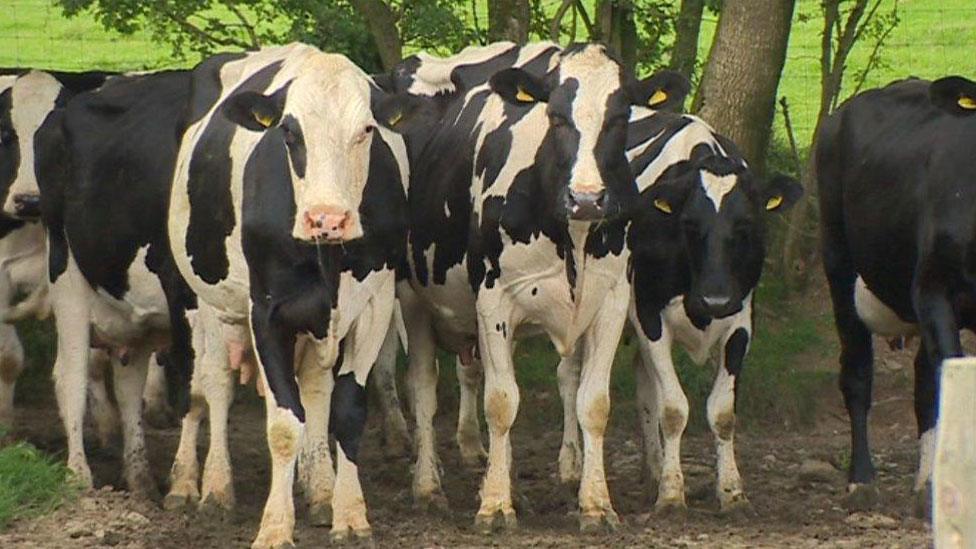Welsh farm worker numbers hit at least 20-year low
- Published
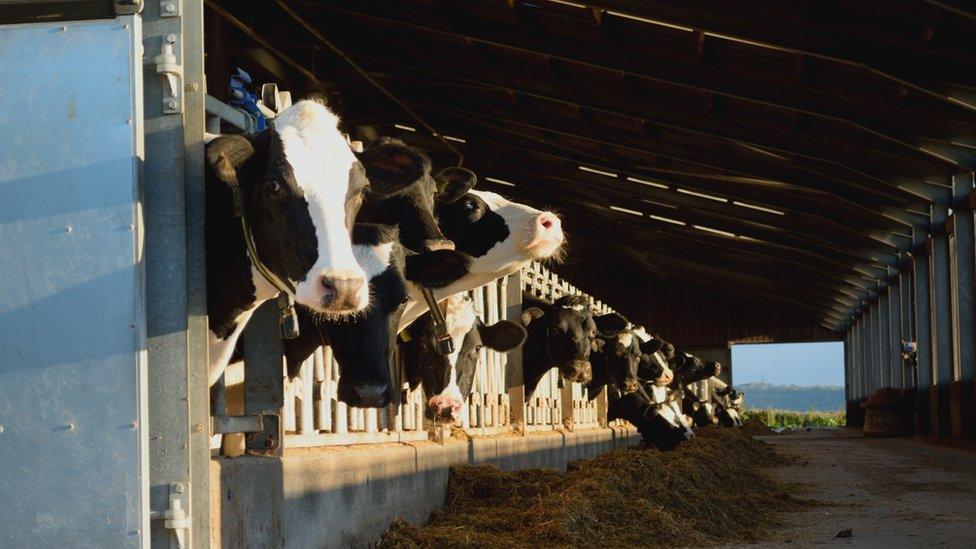
Farm worker numbers in Wales have dropped by more than 16% since 1998, suggests a Welsh Government study
The number of people working on Welsh farms has reached at least a 20-year low, a new study has shown.
The figures show almost 52,000 workers currently have full or part-time jobs on farms - a 3% drop on last year.
In 1998, almost 62,000 worked on farms.
A farming union leader said the figures should be treated "with caution" as, while many have left farm jobs in recent years, many are employed by specialist agricultural contractors.
The latest data for the report, in the Survey of Agriculture and Horticulture: Results for Wales, external, was collected by the Welsh Government in June, The equivalent figures go back to 1998.
It includes full and part-time famers, directors, business partners and their spouses, as well as regular and casual workers.
Those working for specialist contractors were not included.
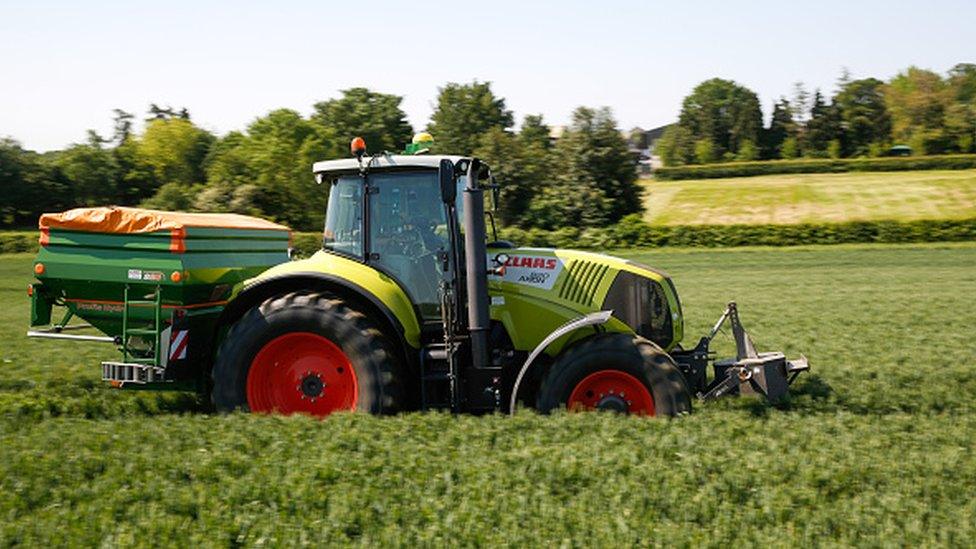
Many workers have left jobs on farms to take jobs with private agricultural contractors
NFU Cymru's deputy president, John Davies, said: "Given the size and structure of farms in Wales, the majority of work is carried out by the farmer and family members.
"Farming businesses will generally employ contractors with specialist skills and machinery to carry out specific tasks on the farm at certain times of year. Examples of this will be for jobs such as shearing, harvesting or hedge cutting.
"These contractors will be self-employed and so will not be included in the figures published by Welsh Government, which relate only to regular workers and casual workers employed on the farm.
"With agriculture becoming increasingly skilled, mechanised and technologically advanced, we believe that there has been a move away from labour employed full-time to hiring self-employed specialists for specific roles.
"This does not necessarily mean that there are fewer people making an income from agriculture, just that the nature of employment has changed."
The survey findings come as this year's Royal Welsh winter fair is due to open at the Llanelwedd showground just outside Builth Wells in Powys. Up to 30,000 visitors are expected to attend the two-day event.

'Five jobs lost'
Trevor Grooms once farmed 350 acres (142 hectares) of organic Ceredigion pastures, milked 95 cattle twice-daily and employed five people.
Today, you'll find him working the night shift, packing boxes for an online book company in Bangor, Gwynedd.
Six years ago, faced with escalating costs, plunging dairy prices and - the final straw - planners' refusal of his application for a wind turbine on his land, Mr Grooms decided to quit dairy farming.
"I'd always been a farmer and I loved it. It was never going to make me rich, but on a good day, it was a special way of life," he said.

Mr Grooms has farmed since he was a teenager
He sold his farm - Ty Hen in Sarnau, near Cardigan - and moved with wife Sue and their four children to Harlech to run a caravan and holiday let business.
But, crippled by bridging loans, Mr Grooms, at 52, has had to take an £8.25-an-hour warehouse job packing boxes six-nights-a-week to help pay his bills.
"It's certainly not the life I was envisaging for myself and my family when I was dairy farming," says Mr Grooms.

Welsh farmers have previously said they face difficult market conditions, as well as a drop in milk prices, payment delays and uncertainty over Brexit.
A Welsh Government official said: "The total number of farm workers in Wales has decreased over the last twenty years, reflecting the position across the UK as a whole. However, production and productivity has increased over that same period.
"The agriculture supply chain is similar to most other industries in the sense that innovation and technological advancement has led to increased mechanisation and more efficient ways of working.
"We will continue to work closely with the agriculture supply chain, including through the Agriculture Advisory Panel and via important programmes such as Farming Connect, to help realise a prosperous and resilient industry as we transition from the EU.
"The Agricultural Advisory Panel for Wales (the Panel) was established in 2016 and is an independent advisory body whose remit is to promote careers in agriculture for those working in the industry as well as new entrants. The Panel also proposes agricultural wages rates for approval by the Welsh Ministers."
- Published12 July 2016
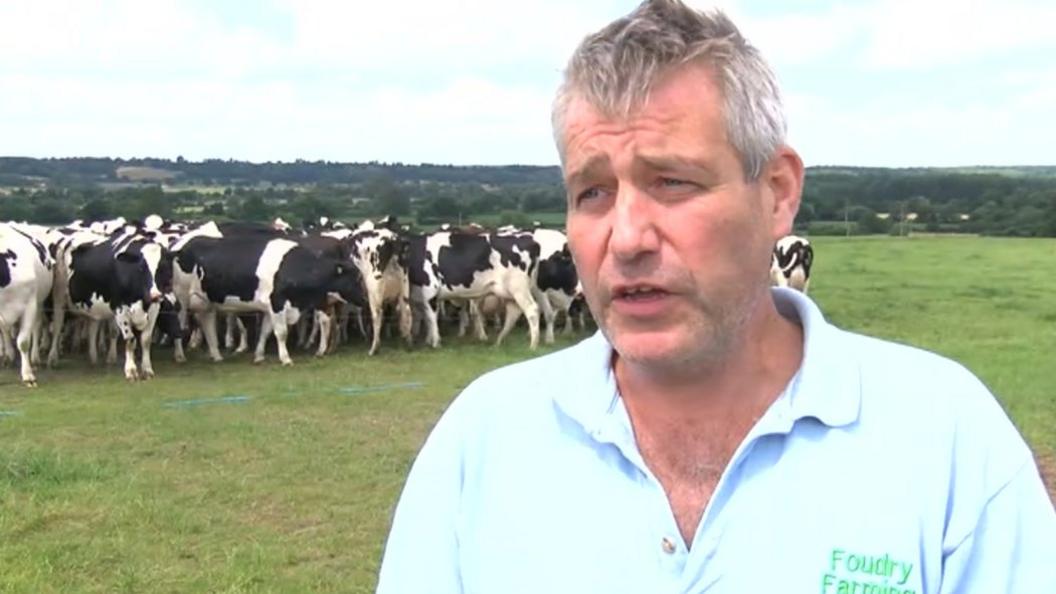
- Published24 June 2016
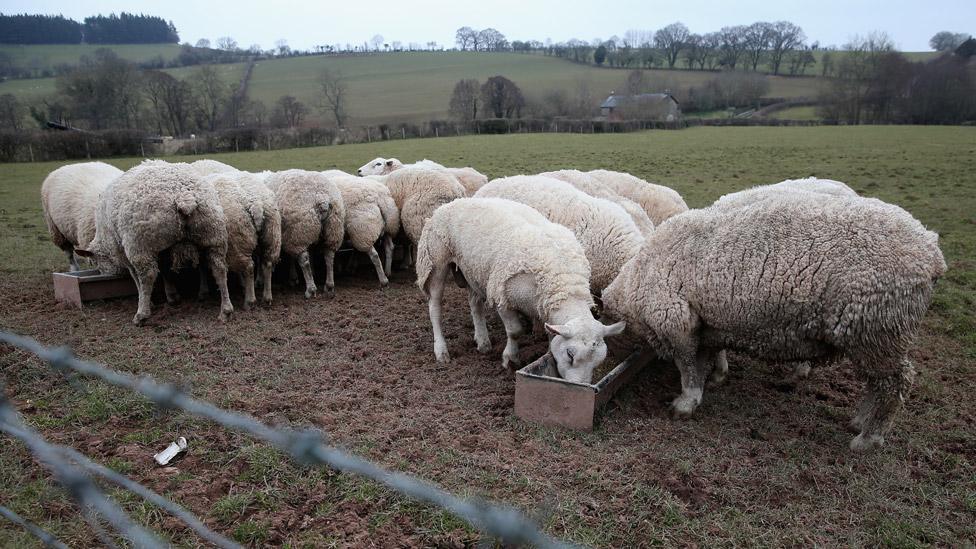
- Published24 March 2017
